Are crooked wisdom teeth bad? This question has been a topic of debate among dental professionals and patients alike for years. Wisdom teeth, also known as third molars, are the last set of teeth to emerge in the mouth, typically during late adolescence or early adulthood. While some individuals have perfectly aligned wisdom teeth that pose no issues, others face the challenge of crooked or misaligned eruptions. The concern revolves around whether these misaligned teeth are inherently harmful or if they can be harmless under certain conditions. This comprehensive article aims to explore every facet of crooked wisdom teeth, examining their potential risks, benefits, and the factors influencing whether they should be removed or left untouched.
Understanding wisdom teeth
Wisdom teeth are a natural part of human dentition, but their evolutionary purpose has long been debated. They are often considered remnants from our ancestors who had larger jaws and needed extra chewing power. Today, with changes in diet and jaw size, many people find their wisdom teeth to be problematic rather than beneficial.

While some individuals develop healthy, properly aligned wisdom teeth that fit seamlessly into their dental arch, others experience impaction, crowding, or misalignment. Crooked wisdom teeth, in particular, raise questions about oral health and aesthetics, prompting many to wonder if such misalignments are solely cosmetic concerns or if they harbor more serious health implications.
The development and eruption of wisdom teeth
The process typically begins between ages 17 and 25, when wisdom teeth start to break through the gums. However, this eruption can vary significantly based on genetics, jaw size, and overall dental health. Some wisdom teeth erupt fully aligned and functional, while others remain impacted beneath the gum tissue, erupt at odd angles, or grow sideways.
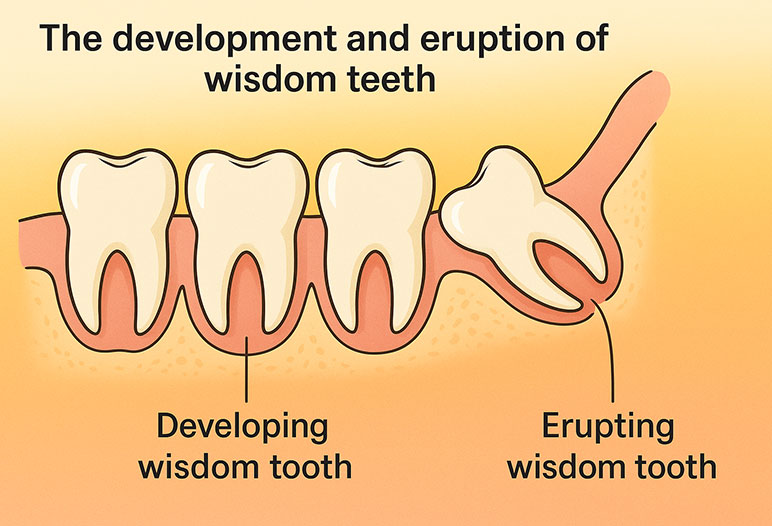
Understanding why these discrepancies occur is crucial for evaluating whether crooked wisdom teeth are inherently dangerous or if they are simply variations in normal development. Genetic predisposition plays a vital role; some families tend to have well-aligned wisdom teeth, whereas others frequently encounter malpositions. Additionally, insufficient space in the jaw can lead to misalignment, forcing wisdom teeth to grow at odd angles, sometimes pressing against neighboring teeth.
The risks and benefits of crooked wisdom teeth
When discussing whether are crooked wisdom teeth bad, it’s essential to weigh both potential hazards and possible advantages associated with misaligned third molars. Not all crooked wisdom teeth cause problems; some may remain asymptomatic and function adequately without interfering with other structures.
However, the potential risks include damage to adjacent teeth, increased susceptibility to infections, cyst formation, and even bone loss. Conversely, in cases where the crooked wisdom teeth do not cause discomfort or displace other teeth, some argue that intervention might be unnecessary.
The potential dangers of crooked wisdom teeth
Crooked or impacted wisdom teeth can exert pressure on neighboring molars, leading to their shifting or damage over time. Such pressure might result in malocclusion, affecting bite alignment and facial aesthetics. Moreover, misaligned wisdom teeth are harder to clean thoroughly, creating pockets where bacteria thrive, which increases the risk of cavities and periodontal disease.
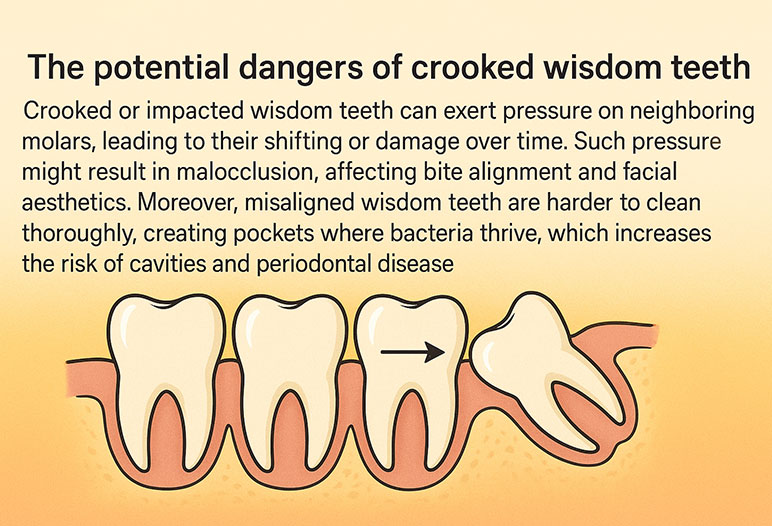
In some cases, the misaligned teeth can cause inflammation of the surrounding gums, resulting in pain, swelling, and difficulty opening the mouth. Impacted wisdom teeth may also develop cysts or tumors, which can destroy the jawbone and neighboring teeth if left untreated.
When crooked wisdom teeth might be harmless
Despite these risks, some individuals live with crooked wisdom teeth that do not cause any symptoms or functional issues. If the teeth are not impacted and do not interfere with speech, chewing, or oral hygiene, some dentists suggest monitoring rather than immediate removal. The decision often relies on individual health status, age, and personal preference.
Interestingly, recent research indicates that not all misaligned wisdom teeth will necessarily lead to complications. In some cases, the body’s adaptation mechanisms compensate for minor misalignments, rendering them harmless.
Our dental clinic’s price for wisdom teeth removal:
| WISDOM TOOTH EXTRACTION | DENTAL COST (USD) | DISCOUNT PRICE (USD) |
| Extraction of a mobile tooth | 160 - 200 | 120 - 160 |
| Wisdom tooth extraction (Upper) | 200 – 240 | 160 – 200 |
| Wisdom tooth extraction (Lower) | 280 - 320 | 240 - 280 |
| Impacted wisdom tooth extraction | 320 - 360 | 280 - 320 |
| Painless extraction with PIEZOTOME | 280 | 200 |
Weighing the pros and cons: To remove or not to remove?
Deciding whether to extract crooked wisdom teeth involves careful assessment. Factors include the degree of misalignment, the presence of symptoms, the potential for future problems, and patient-specific risks. Preventive removal might be recommended if there’s a high likelihood of developing complications, especially in younger patients with ongoing jaw growth.
Conversely, in older adults or asymptomatic cases, conservative management and periodic check-ups could be more appropriate. The key lies in personalized treatment plans developed through thorough clinical evaluation.
| Aspect | Potential Risks | Possible Benefits |
| Impact on adjacent teeth | Tooth decay, erosion, or damage to neighboring teeth | Preservation of natural dentition if no problem exists |
| Infection risk | Increased probability due to difficult cleaning | Avoidance of unnecessary surgical procedures |
| Cyst or tumor formation | Potential destruction of the jawbone over time | Maintaining oral structure integrity |
| Aesthetic impact | Crowding or misalignment affecting smile aesthetics | No aesthetic concerns if positioned correctly |
Signs indicating the need for intervention
Recognizing the signs that wisdom teeth—crooked or otherwise—may require removal is critical to maintaining oral health. Many symptomatic cases showcase clear reasons for extraction, though some individuals experience little to no discomfort.
Common symptoms associated with crooked wisdom teeth
Pain, swelling, and tenderness around the back of the mouth often signal problems with wisdom teeth. These symptoms usually result from impaction or infection. Difficulties in opening the mouth, persistent bad breath, or a foul taste are additional signs of underlying issues.
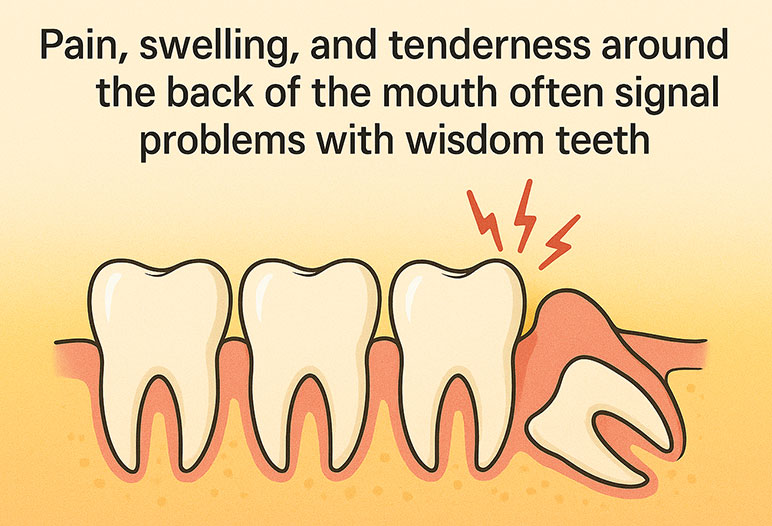
Patients may also notice crowding of other teeth, especially if the wisdom teeth exert pressure on neighboring molars, altering the alignment of the entire dentition. Visible swelling or redness in the gum tissue near the last molars is a red flag indicating inflammation or infection.
Clinical and radiographic indicators
Dentists rely on clinical examination and radiographs (X-rays) to evaluate the position and health of wisdom teeth. Impacted or crooked teeth that are close to nerve structures or sinus cavities may require special consideration before removal.
An impacted wisdom tooth growing at an angle toward the second molar poses a significant risk of damage, making extraction advisable. Conversely, fully erupted, well-aligned wisdom teeth that do not interfere with oral functions may be left untouched.
Risk factors for future complications
Individuals with limited jaw space, a history of periodontal disease, or a compromised immune system are more vulnerable to problems related to crooked wisdom teeth. Age also plays a role; the older one gets, the higher the chances of complications during removal and healing.
Active lifestyle, personal preferences, and the potential for financial costs associated with surgery further influence decision-making. Open communication with dental professionals ensures tailored strategies that balance risks and benefits.
Strategies for managing crooked wisdom teeth
Once the need for intervention is established, various approaches are available. Management strategies depend on individual circumstances, including age, health, and specific dental anatomy.
Conservative monitoring and observation
In asymptomatic cases where crooked wisdom teeth are not causing any apparent issue, regular dental checkups are advisable. Radiographic imaging should be performed periodically to monitor any changes in positioning or emerging pathology.
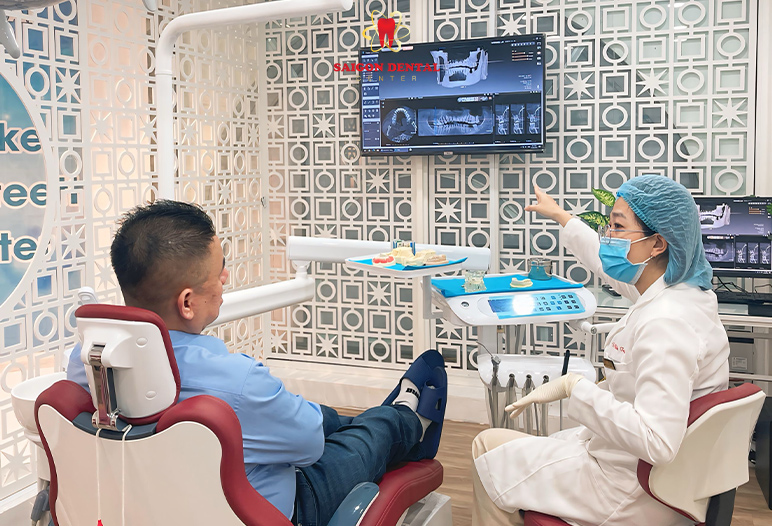
This approach minimizes unnecessary surgical procedures, especially in older adults or those with health conditions precluding surgery. Patients should be educated about warning signs requiring prompt dental consultation.
Surgical extraction – When and how
Extraction procedures are generally straightforward but vary depending on the complexity of impaction and root morphology. An experienced oral surgeon performs most removals, ensuring minimal discomfort and efficient recovery.
Preparation involves detailed imaging, anesthesia, and sometimes sedation. Post-operative care includes pain management, maintaining oral hygiene, and dietary adjustments until healing progresses.
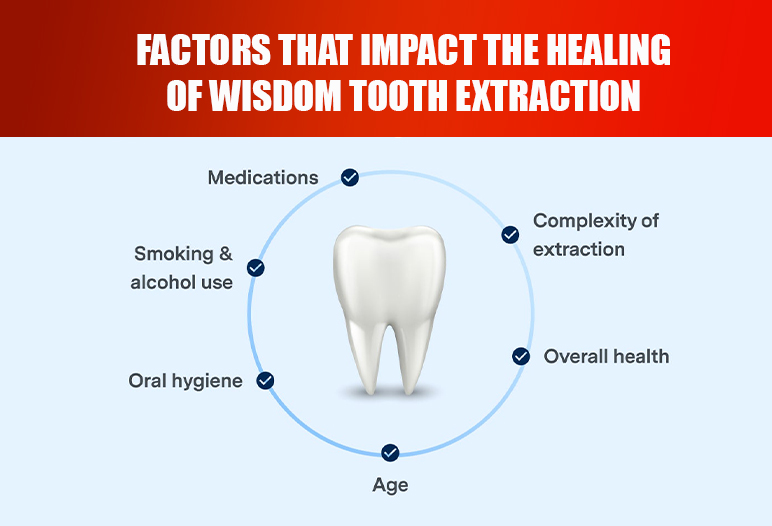
Alternatives to Extraction
In certain scenarios, orthodontic interventions might reposition crowded or crooked wisdom teeth, although such options are limited due to the late eruption of third molars. Alternatively, restorative or cosmetic procedures can address aesthetic concerns if misalignment affects appearance.
Choosing between surgical and non-surgical options requires a balanced assessment of risks, benefits, and patient preferences.
Conclusion
The question are crooked wisdom teeth bad does not lend itself to a simple yes or no answer. While crooked or misaligned wisdom teeth can pose significant health risks—such as damage to neighboring teeth, infections, cyst formation, and misalignment—they are not inherently harmful if asymptomatic and properly managed. The decision to remove or preserve these teeth hinges on individual factors like symptoms, anatomical considerations, age, and overall health.
Advancements in diagnostic imaging and surgical techniques have made management options safer and more personalized than ever before. Ultimately, maintaining open communication with dental professionals and adhering to recommended check-ups are key to ensuring optimal oral health, whether that involves intervention or observation. Recognizing the signs early and understanding the potential implications of crooked wisdom teeth empower patients to make informed decisions to safeguard their smiles for years to come.

